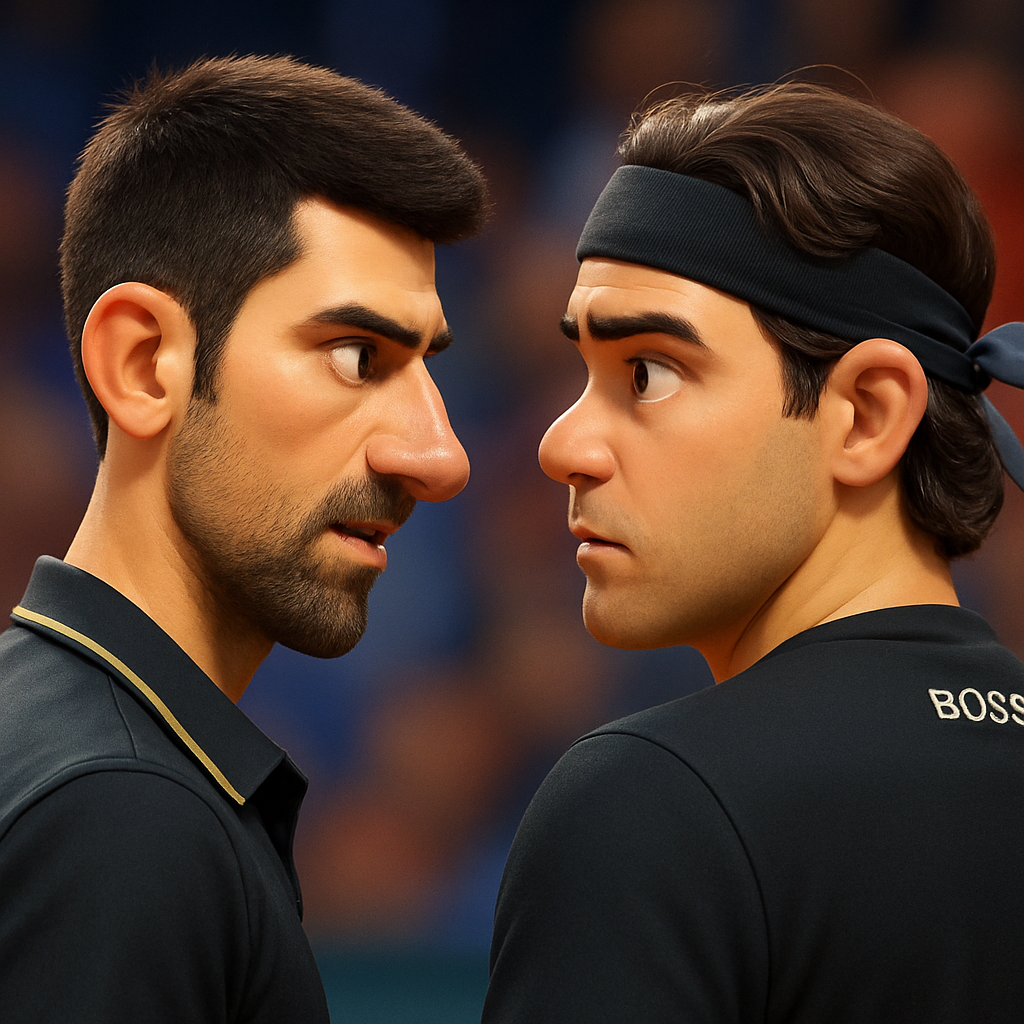MONTE CARLO — The simmering discontent among professional tennis players has boiled over into a very public dispute, with Novak Djokovic amplifying his call for a more unified and organized player body, while younger stars like Taylor Fritz and Jack Draper voice their own sharp criticisms of the ATP Tour's governance and scheduling.
The catalyst for this latest flare-up appears to be the grueling and congested 2024 tennis calendar, a long-standing point of contention that has left players feeling physically drained and increasingly vocal. Djokovic, the President of the ATP Player Advisory Council, has consistently argued that for players to enact meaningful change, they must first get their own house in order.
In comments reported after a practice session, Djokovic stated, "We have the PTPA (Professional Tennis Players Association) and we have the ATP Player Council. The structure is there, but the effectiveness depends entirely on player unity. If we are fragmented, our voice is weak. We need a collective, strong front to negotiate better conditions, a more logical schedule, and a fairer distribution of prize money."
The Player Council vs. The PTPA: A Fractured Front
The core of Djokovic's argument revolves around the ongoing division between the official ATP Player Council, of which he is a part, and the breakaway PTPA, which he co-founded with Vasek Pospisil. The PTPA aims to act as an independent union solely for players, while the Council is integrated into the ATP's joint governance structure with tournament directors.
This split has, in the view of many, diluted the players' bargaining power. Djokovic elaborated, "The tournaments are incredibly well-organized. They have a clear agenda and they stick to it. Historically, players have not been as united. That is the single biggest obstacle to achieving our goals." His plea is for players to align behind a single, powerful representative body to counter the influential tournament directors.
Fritz and Draper Voice Their Frustrations
While Djokovic focuses on the macro-level organizational issues, American No. 1 Taylor Fritz and Britain's Jack Draper have highlighted specific, tangible problems. Their criticisms came to a head following brutal scheduling at recent Masters 1000 events, where players were forced to compete late into the night and then again early the next day.
Fritz did not hold back after a punishing match in Monte Carlo, stating, "It's a joke. We finish a three-hour battle at 2 a.m., and then you're expected to be back on court, physically and mentally prepared, less than 16 hours later. It's disrespectful to the players and the quality of the sport."
Draper, who has been plagued by injuries in his young career, echoed these sentiments, pointing directly at the toll the schedule takes on player health. "The body can't recover that quickly. It's not humanly possible. The tour talks a lot about player welfare, but the schedule tells a different story. We're treated like commodities, not people."
The Specific Grievances on the Table
The players' frustrations are not abstract. They are centered on a list of concrete issues that have been discussed for years with little resolution. The current outcry has brought the following key points back to the forefront:
- Bye-Week Scheduling: The practice of top players receiving a first-round bye, only to then play their second-round match against a player who has already competed on the same surface.
- Late-Night Finishes: Matches routinely ending in the early hours of the morning, compromising recovery, player performance, and fan engagement.
- Short Turnarounds: Insufficient rest between matches, especially when moving from a night session to a day session.
- Prize Money Distribution: A significant concentration of wealth at the very top of the sport, leaving lower-ranked players struggling to cover costs.
A tournament director, speaking on condition of anonymity, pushed back, suggesting player demands for appearance fees and commitments also contribute to the tight scheduling. "It's a complex puzzle. Broadcast windows, ticket sales, and player commitments all create pressure. There are no easy solutions."
The Path Forward: Unity or Continued Stalemate?
Djokovic's message is clear: the path to solving these issues runs directly through player solidarity. He believes that without a unified front, the ATP Tour will continue to prioritize commercial and tournament interests over player well-being. "We have to be the architects of our own future," he asserted.
However, achieving this unity remains the monumental challenge. The coexistence of the Player Council and the PTPA creates confusion and competing loyalties. While the PTPA has gained hundreds of members, it still lacks official recognition from the ATP and the Grand Slams, limiting its immediate negotiating power.
The response from the ATP has been measured. A spokesman stated, "The ATP is constantly reviewing the calendar and scheduling in close consultation with the Player Council. We are committed to exploring all options to improve conditions for our athletes while balancing the needs of a global sport."
A New Generation Demands Change
What makes this current moment different is the involvement of players like Fritz and Draper. They represent a new generation that is less willing to accept the status quo and more comfortable using their platforms to demand better treatment. Their vocal support adds significant weight to Djokovic's longstanding campaign.
Draper concluded with a stark warning, "If things don't change, you're going to see more and more players, especially the younger ones, burning out or getting injured. The sport needs to look after its biggest assets—the players. Right now, it feels like it's failing."
As the clay-court season intensifies and the tour moves toward Roland-Garros, the pressure is mounting on the ATP's leadership. The question remains whether Djokovic's call for unity will be heeded, or if the players' frustrations will continue to be voiced in press conferences rather than resolved in boardrooms.
The ball is now in the players' court to organize, and in the ATP's court to listen. The future health of the sport and its athletes may very well depend on the outcome of this ongoing struggle.

